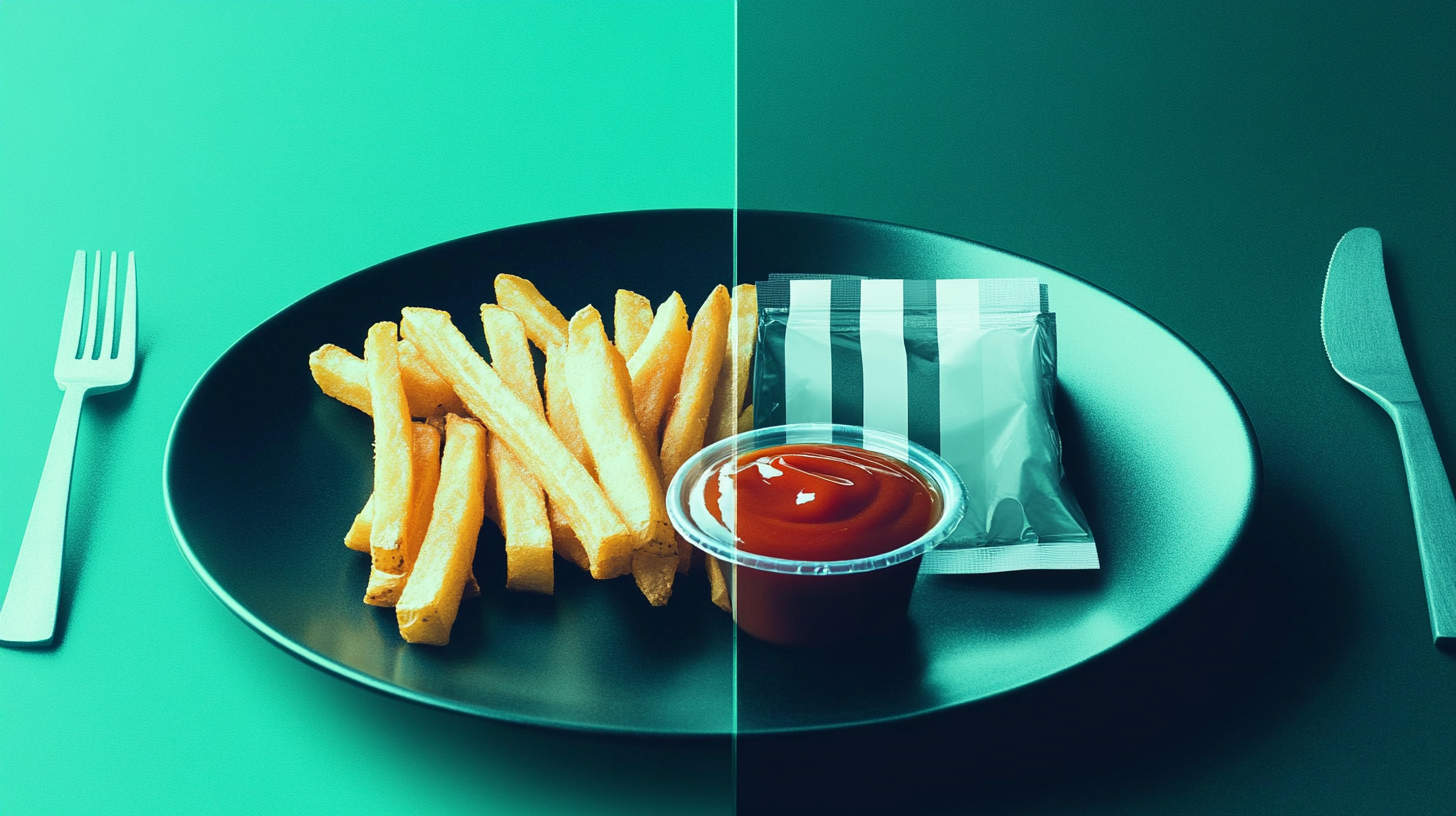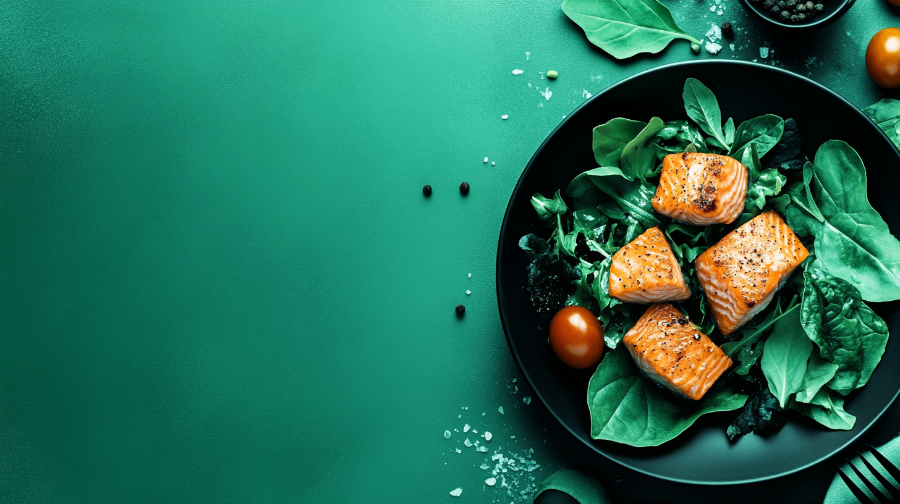The world is facing a huge challenge: plastic waste pollutes our oceans, microplastics enter our food chain, and CO2 emissions from plastic production significantly contribute to climate change. Over 350 million tons of plastic waste are produced worldwide each year – and the trend is rising. Even more alarming is the fact that only 9% of it is recycled. It’s becoming increasingly clear: recycling alone is not enough to solve the plastic crisis.
The Solution: High-Barrier Packaging from Renewable Resources
REPAQ offers an alternative that not only addresses the plastic problem but also significantly reduces CO2 emissions. The solution: high-barrier films made from cellulose, starch, and paper, which are fully compostable after use. These innovative packages provide the same protection as conventional plastic – without harming the environment.
Benefits of REPAQ Packaging:
- No harmful plastic waste: Plant-based materials leave no microplastics behind.
- Reduction of CO2 footprint: At least 50% less CO2 emissions compared to plastic.
- Circularity: After use, the packaging turns into humus – a perfect example of a true circular economy.
A Market with Huge Potential
The EU Packaging and Packaging Waste Regulation (PPWR) will revolutionize the food packaging market by 2030. Single-serve packaging for liquids in particular – a segment that has barely transitioned to sustainable solutions – offers enormous potential. REPAQ is perfectly positioned to dominate this niche market.
Market size:
- Single-serve packaging EU+USA: €1.15 billion
- Bio-based film packaging EU+USA: €1.95 billion
- Total global sustainable packaging market: €258 billion, with an annual growth rate of 6.6%.
Competitive Advantage: Quality, Protection, and Sustainability
REPAQ stands out thanks to several unique advantages:
- High-quality product protection: The high-barrier films offer excellent protection against water vapor, oxygen, and sunlight.
- Machine compatibility: The films are compatible with existing packaging machines, making it easier for customers to switch.
- Patent protection: REPAQ holds several patents that protect its technological know-how and ensure its competitive edge.
Customer Voices: Proven Quality and Trust
More than 30 customers have already switched to REPAQ, generating over €5 million in revenue together. Here are some of their voices:
- Huober Brezel: “We’ve tested all packaging alternatives for about 5 years, and so far REPAQ’s film has delivered the best results in terms of durability and processability.”
- Cha Dô: “Over the course of the year, all of Cha Dô’s teas will be packaged in these films.”
Growth Potential: Focus on Liquid Single-Serve Packaging
Since Q2 2024, REPAQ has focused on developing compostable films for liquid single-serve packaging – a segment that previously had no sustainable solution. With a market size of €450 million in the EU and €700 million in the USA, this is a decisive step for the company’s growth.
The Business Model: From Development to Delivery
REPAQ offers its customers a full-service package:
- Product development: Tailor-made solutions that meet the highest environmental standards.
- Certification: Compostability and food safety are rigorously tested.
- Production: Scalable production through an established producer network.
- Full service: Technical and marketing support through to market launch.
Capital Need: €1 Million for the Next Growth Phase
To accelerate growth, REPAQ is seeking €1 million in capital for 2025. The funds will be invested in sales, product development, and optimization of production processes.
Vision 2030: A Future Worth Inheriting
By 2031, REPAQ aims to:
- Reduce over 55,500 tons of CO2 emissions.
- Prevent over 10,000 tons of plastic waste.
- Achieve €60 million in revenue.
The Team: Conviction and Passion
Behind REPAQ is a dedicated team with deep expertise:
- Katja Seevers (Co-Founder / MP): Over 15 years of experience in managing international clients.
- Sven Seevers (Co-Founder): More than 20 years of experience in product development for major corporations.
- Inga Steuwe: Expert in innovation management and entrepreneurship.
From Waste to Worth: Futamura, Repaq & GK Sondermaschinenbau Reinvent the Sachet
Sachets are everywhere—those tiny packets of ketchup, hand cream, or shampoo that we barely notice but throw away by the billions. Convenient? Yes. Recyclable? Hardly. But a new partnership between Futamura, Repaq, and GK Sondermaschinenbau may have just changed the game for good.
Together, the three companies have launched a compostable packaging innovation aimed at one of the most stubborn waste offenders in the FMCG world: multilayer sachets. Their new solution is based on a cellulose film that’s both home and industrially compostable, offering a planet-friendly alternative to the complex plastic laminates typically used.
What sets this development apart isn’t just the sustainability angle—it’s the practicality. The high-barrier NatureFlex film from Futamura, combined with a bio-based sealing layer from Repaq, doesn’t require brands to rethink their entire production line. In fact, the material runs seamlessly on GK Sondermaschinenbau’s standard packaging machines with virtually no modification.
“The barrier performance is strong enough for oily and moisture-sensitive products, and the packaging speed remains unchanged,” said Sven Seevers, Repaq’s Technology Manager. Early trials showed a shelf life of up to 12 months for typical sauce products, with an oxygen transmission rate below 0.5 OTR—impressive for compostable packaging.
For GK Sondermaschinenbau, it was a proof of concept with real-world potential. “We saw that almost no adjustments were needed to integrate the new structure into existing workflows,” said Nico Merkel, Head of Sales.
The bigger picture? A potential shift in how brands and consumers view single-use formats. In 2018 alone, around 855 billion sachets were used globally—most of them unrecyclable. For brands looking to stand out in eco-sensitive markets, this new solution offers a rare combination: high performance, low environmental impact, and no disruption to existing processes.
Joachim Janz from Futamura sees this as a strategic fit for brands aiming to elevate their sustainability efforts. “It’s the kind of innovation that fills a real gap—where small packaging used to mean big environmental compromise, we now have a compostable alternative that works.”
Small package. Big impact.
Conclusion: REPAQ – More Than Packaging, a Statement
REPAQ proves that sustainable packaging is not only necessary but also economically viable. With innovative technology, a clear competitive advantage, and a dynamic team, the company is ready to revolutionize the packaging industry.
More information: www.repaq.com






